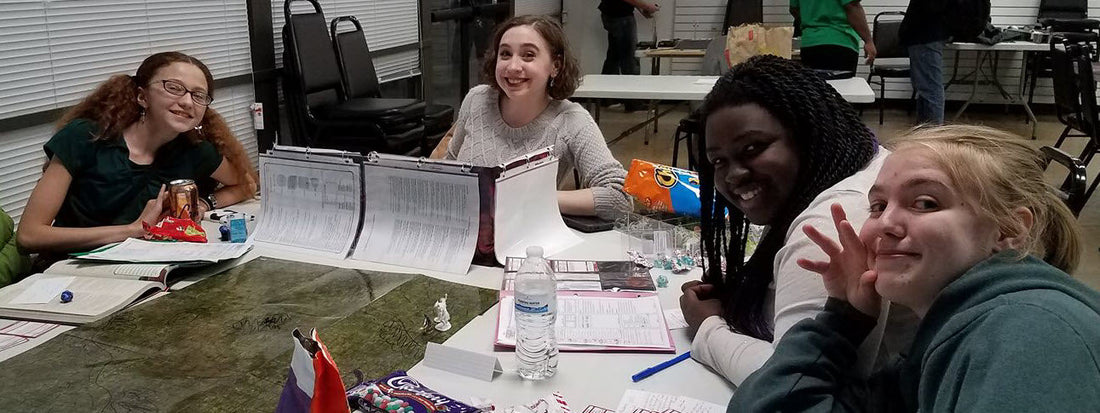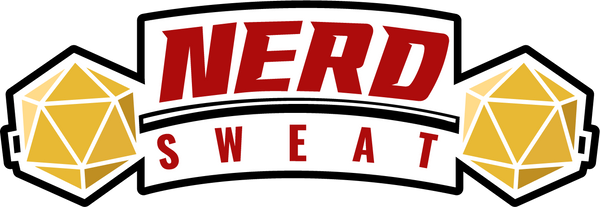
Building Empathy at the Table: RPGs as a Tool for Social-Emotional Learning
The greatest treasure in any tabletop RPG isn’t a legendary sword or a vault of gold—it’s perspective. When you sit down at the table, roll the dice, and step into another character’s shoes, you aren’t just playing a game—you’re practicing empathy. Role-playing games (RPGs) create a unique space where players can explore different identities, navigate moral dilemmas, and build deeper connections with others. Whether you're an educator, a team leader, or just a Dungeon Master looking to make your game more meaningful, RPGs are an incredible tool for social-emotional learning (SEL).
Why Role-Playing Builds Empathy
Empathy isn’t just about understanding someone else's emotions—it’s about experiencing them. When we role-play, we embody characters with lives, struggles, and motivations different from our own. Through their choices and challenges, we learn to see the world through fresh eyes.
Example: Imagine playing a warlock who made a desperate pact to save their family but now struggles with their patron’s ever-growing demands. That story mirrors real-life dilemmas—how far would you go for those you love? What does loyalty cost? These moments allow players to reflect on ethical questions and deepen their understanding of human emotion.
Studies support this: research from the Greater Good Science Center at UC Berkeley suggests that storytelling and role-playing can increase emotional intelligence, helping players recognize and regulate their own emotions while empathizing with others.
Using RPGs for Social-Emotional Learning (SEL)
Educators and therapists are increasingly using RPGs to teach SEL skills such as cooperation, self-awareness, and emotional regulation. Here’s how you can bring these lessons into your game:
1. Character Backstories as a Window into Empathy
Encourage players to create characters with personal struggles or unique backgrounds. Ask questions like:
- What was your character’s greatest hardship?
- Who do they care about the most?
- What assumptions do they make about the world?
By thinking deeply about their characters’ perspectives, players learn to appreciate the diversity of human experience.
Resource: The Ultimate RPG Character Backstory Guide (by James D’Amato) offers great prompts for developing rich character backstories.
2. Moral Dilemmas That Challenge Assumptions
Great RPG moments come from tough decisions. Introduce ethical dilemmas that force players to think critically about right and wrong.
Example: The party stumbles upon a starving goblin village. Do they offer aid, knowing the goblins have raided nearby towns? Or do they leave them to suffer, maintaining local peace?
These moments encourage players to question biases, debate ethical choices, and develop a sense of moral responsibility—all key elements of social-emotional learning.
Resource: The Book of Beautiful Questions by Warren Berger is a great resource for crafting thought-provoking dilemmas.
3. Conflict Resolution Through Role-Playing
Conflict—whether between characters or players—is an inevitable part of RPGs. But it’s also a valuable teaching tool. Encourage players to resolve conflicts in character, using diplomacy and negotiation rather than combat.
Example: Instead of fighting a rival adventuring party, players could role-play a tense negotiation, attempting to de-escalate the situation through persuasion. This fosters skills like active listening, compromise, and patience—all useful in real life.
Resource: Nonviolent Communication: A Language of Life by Marshall Rosenberg provides excellent strategies for handling conflict with empathy and understanding.
Beyond the Table: Real-Life Applications
The lessons learned in an RPG don’t just stay in the game—they transfer into real-world relationships, workplaces, and communities. Teachers are using D&D in classrooms to help students improve social skills, while therapists are implementing role-playing therapy to help individuals with anxiety and trauma.
Even outside of formal settings, playing RPGs can improve our ability to navigate friendships, work conflicts, and family dynamics. The next time you sit down at the table, remember: you’re not just playing—you’re practicing.
Final Thoughts: The Magic of Empathy in RPGs
At the heart of every great story is a simple truth: we all want to be understood. RPGs give us the opportunity to not only understand others but to feel their struggles, celebrate their victories, and share in their experiences.
So, the next time you roll a character, think beyond the stats. What do they fear? What do they dream of? And most importantly—what can they teach you about the world?
Because the real magic of role-playing isn’t just in casting spells—it’s in walking a mile in someone else’s boots.
Resources for Further Exploration:
- Critical Role Foundation – Using RPGs for charitable, social, and educational initiatives.
- D&D Beyond – Online tools for character creation and storytelling.
Now, roll initiative—not for battle, but for understanding. The adventure of empathy begins at the table.
